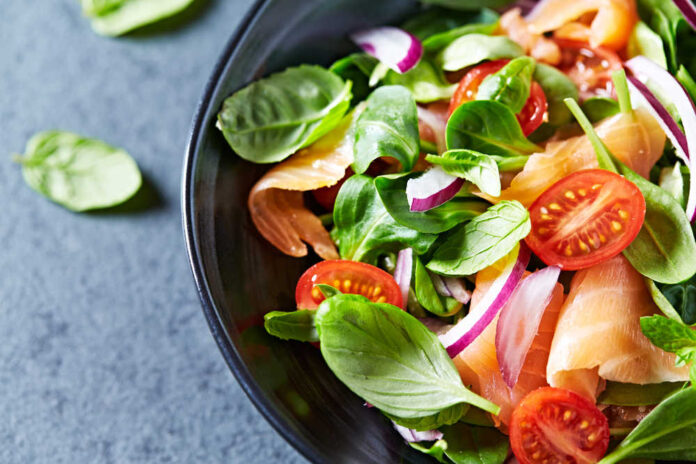
If you are living with depression, there’s a good chance you are not eating as healthily as you could be.
Depression can interfere with appetite and deprive you of the energy needed to cook nutritious meals. It can also lead to emotional eating and cravings for unhealthy comfort foods.
But what you eat can have a big impact on your mood. Some foods contain nutrients that can help to ease depression symptoms. When you are able to incorporate these foods into your diet, you’ll likely notice a difference in your mood and overall mental health.
Salmon
Salmon (and other fatty fish like sardines, mackerel, and tuna) is an excellent source of omega-3 fatty acids. These are essential nutrients that the body needs for optimal health but can only be obtained through diet.
Omega-3 fatty acids are known to have anti-inflammatory effects and promote brain health. If you aren’t getting enough, this could contribute to your depression. Increasing your intake of omega-3s can have a beneficial effect on depression.
Leafy Greens
Lettuce, spinach, kale, and other leafy greens are packed with nutrients that are essential for good health. One nutrient, folate (vitamin B9), appears to play a key role in serotonin synthesis and depression.
Deficiencies in vitamin B9 can cause or worsen depression and depressive symptoms. Adding more leafy greens to your diet can help to increase your intake of this important nutrient.
Lentils, green beans, asparagus, and B vitamin-enriched grains are also good sources of folate.
Carrots
Carrots (along with other orange and yellow vegetables like sweet potatoes, squash, and pumpkin) are rich in beta-carotene.
Beta-carotene provides both antioxidant and anti-inflammatory effects and has also been shown to be inversely associated with depression. This means that the more beta-carotene you have in your diet, the less likely you are to experience depression. And likewise, low levels of beta-carotene tend to increase your chances of developing depression.
Tomatoes
Tomatoes are another excellent source of beta-carotene, but they also contain lycopene, lutein, and zeaxanthin—three other carotenoids that have all been linked to better mental health.
Lycopene is the red pigment that gives tomatoes their bright color. It’s a powerful antioxidant that has been shown to reduce inflammation and improve brain function.
Turkey
Turkey is a rich source of tryptophan, an amino acid that’s needed for serotonin synthesis.
Serotonin is a neurotransmitter that is commonly referred to as the “happy chemical.”
Low serotonin levels often characterize depression. Antidepressant medications typically work by increasing serotonin activity in the brain. These are called SSRIs, which stand for selective serotonin reuptake inhibitors.
While turkey might not have the same effect as SSRI medication, it can supply your body with the amino acid ingredients it needs to produce serotonin. This, in turn, could lead to higher serotonin levels, less depression, and a happier, healthier mood.






















